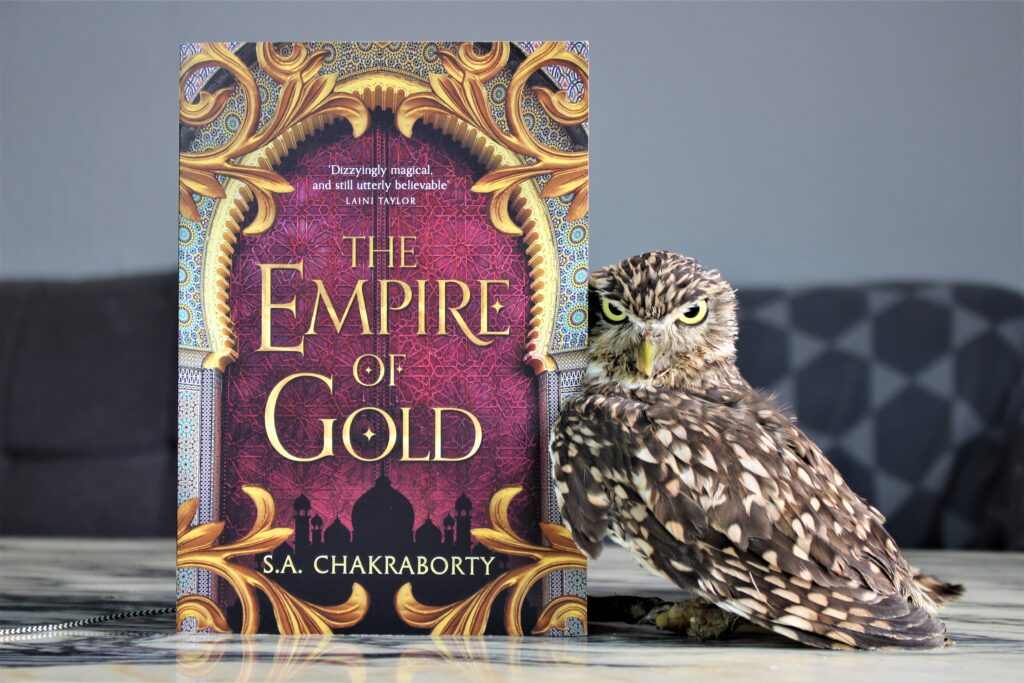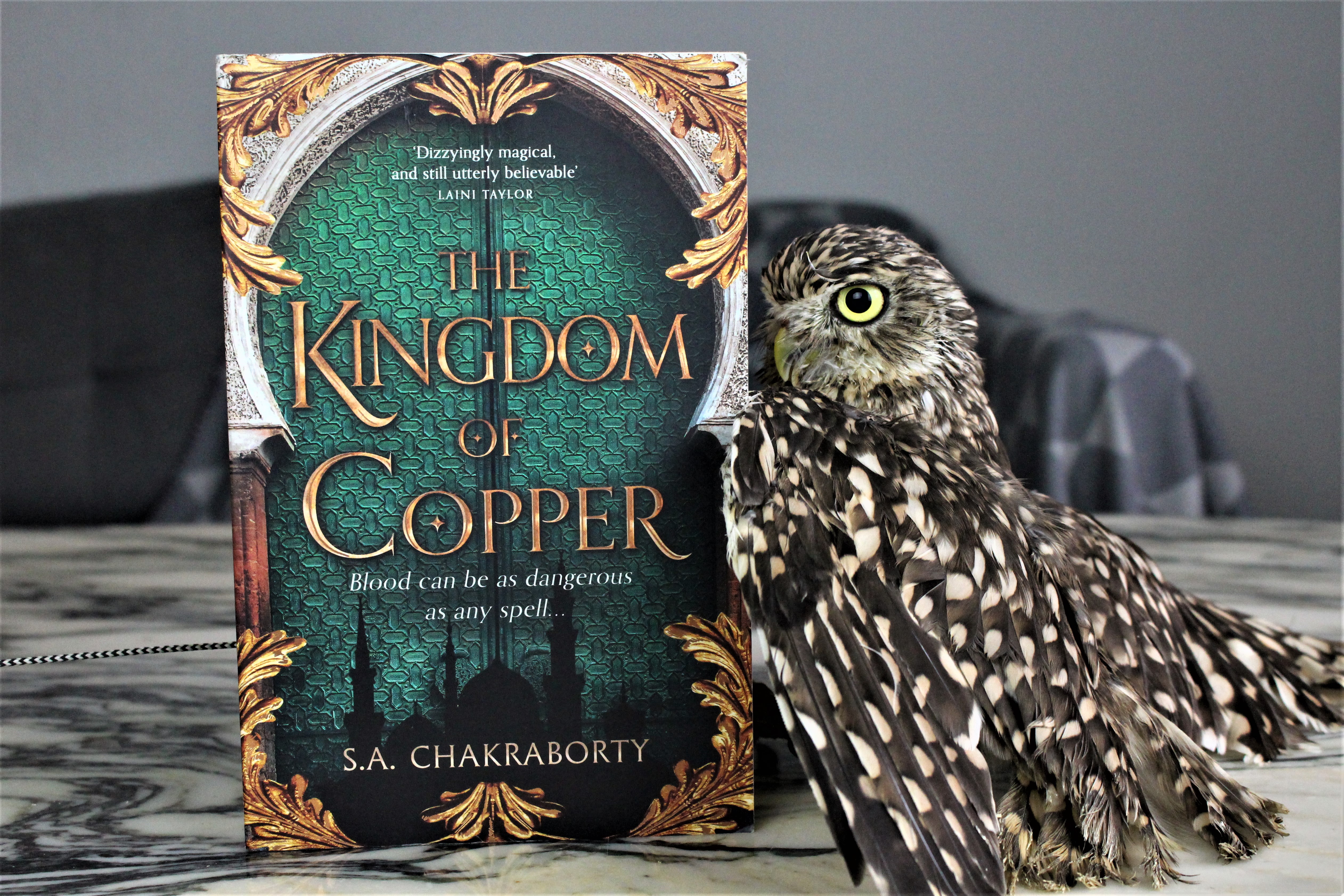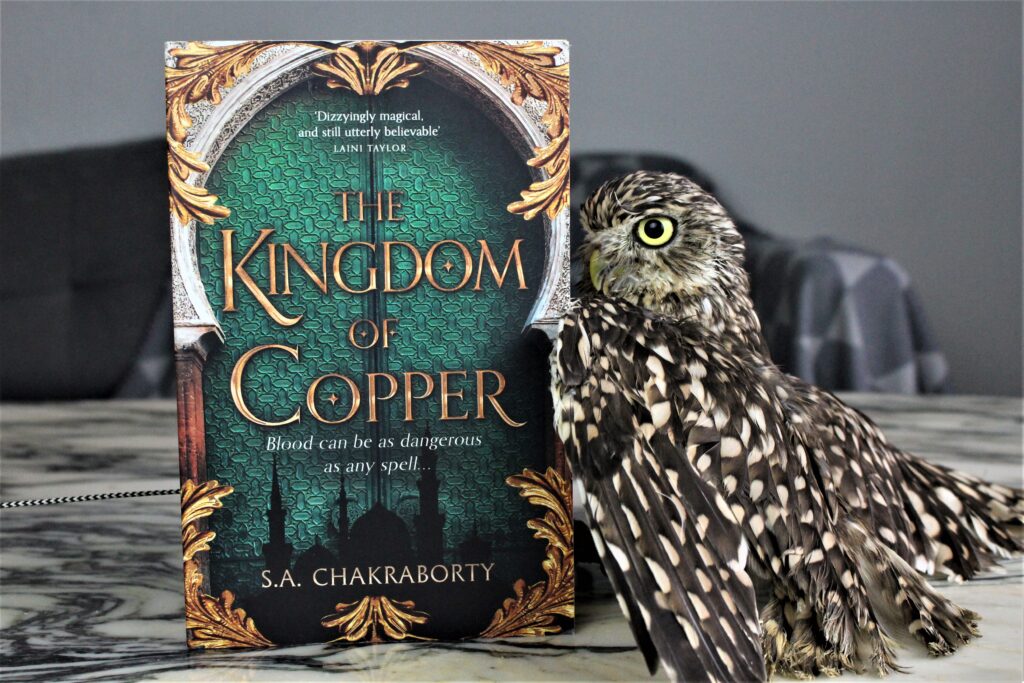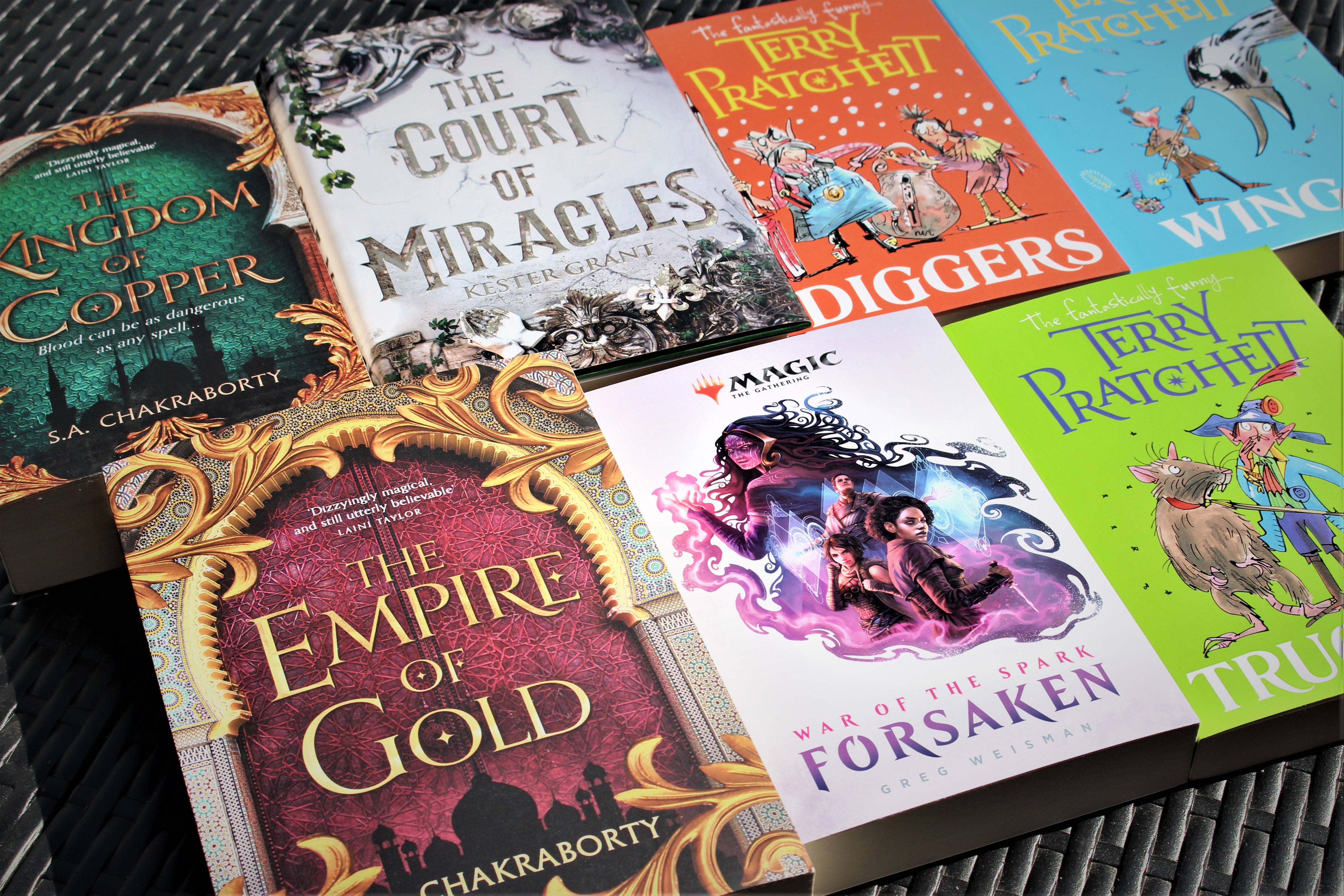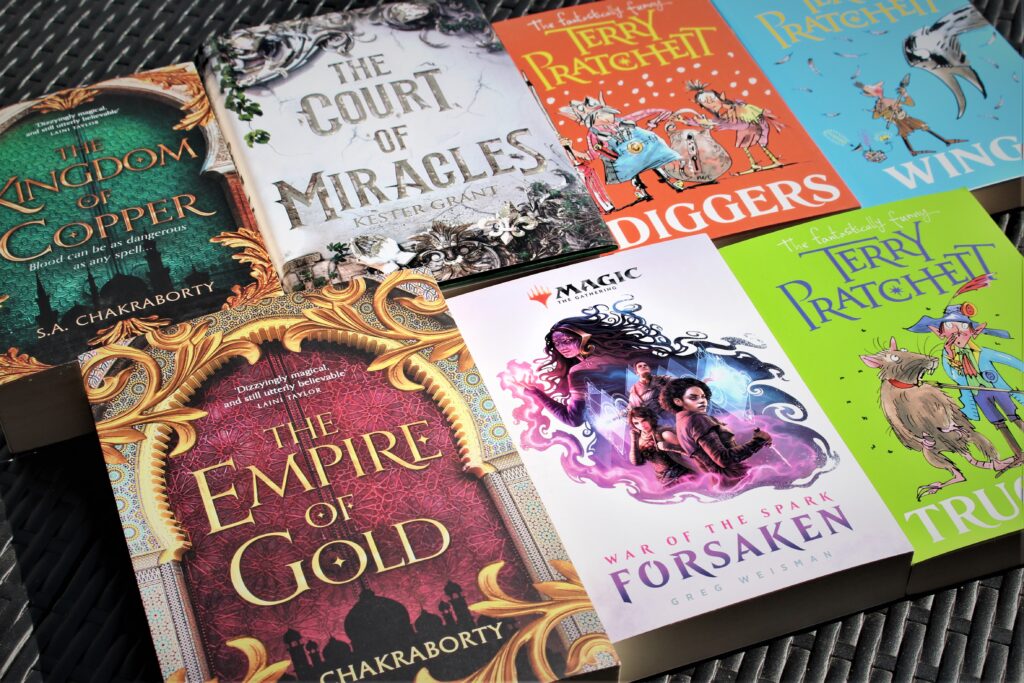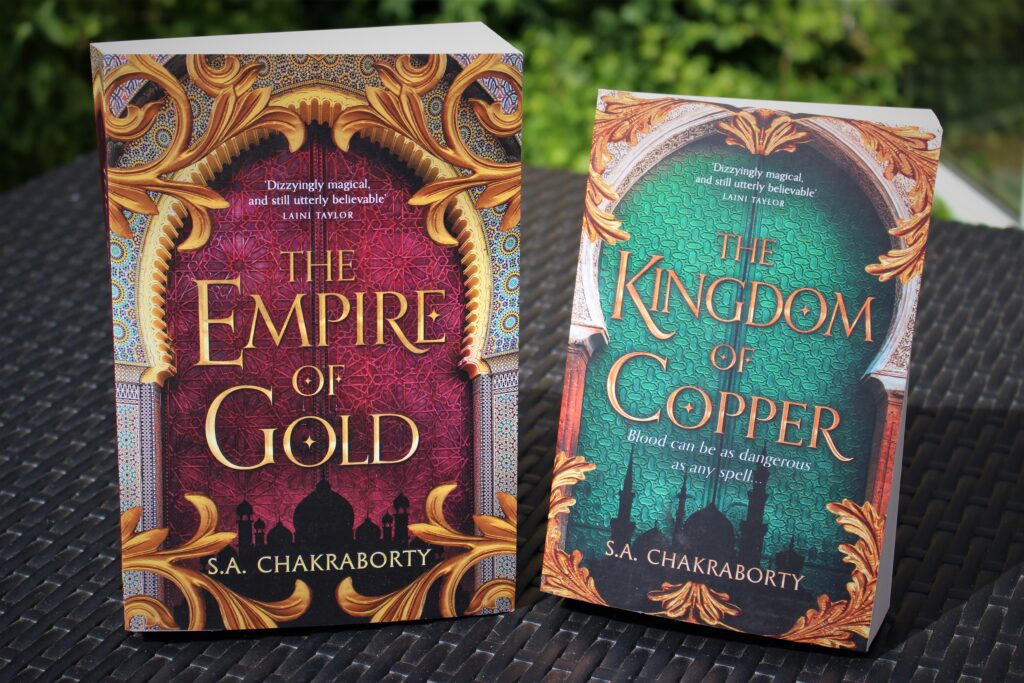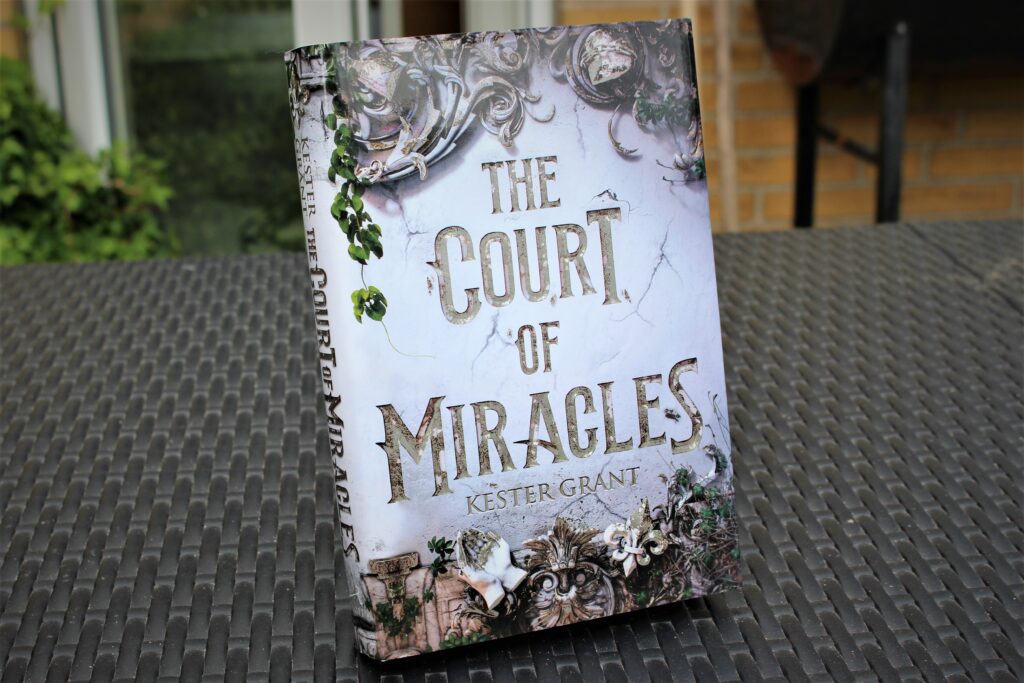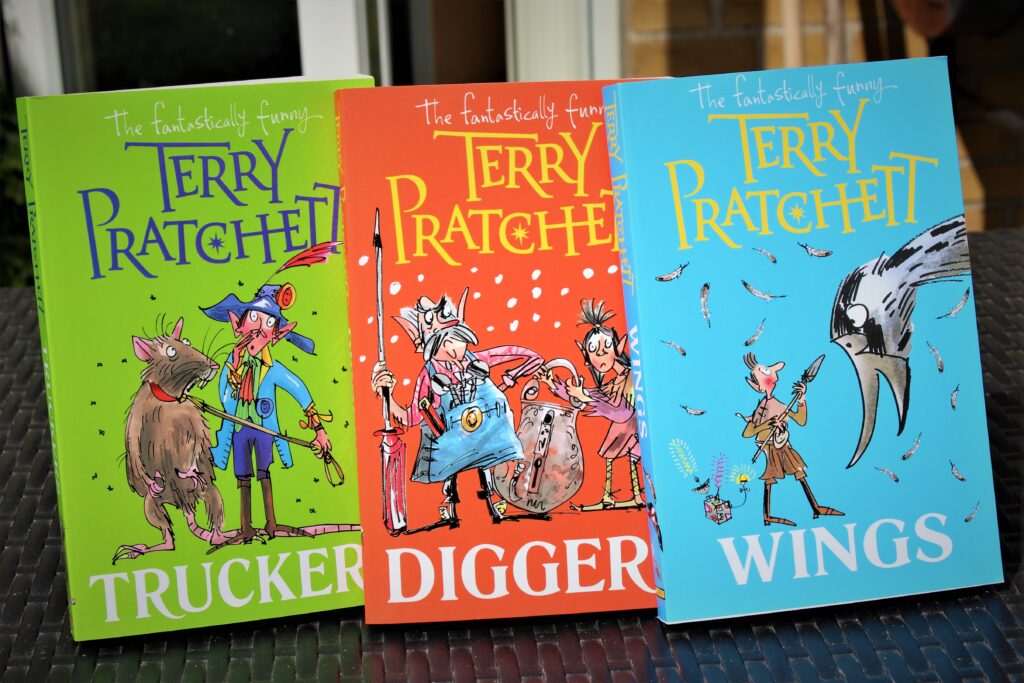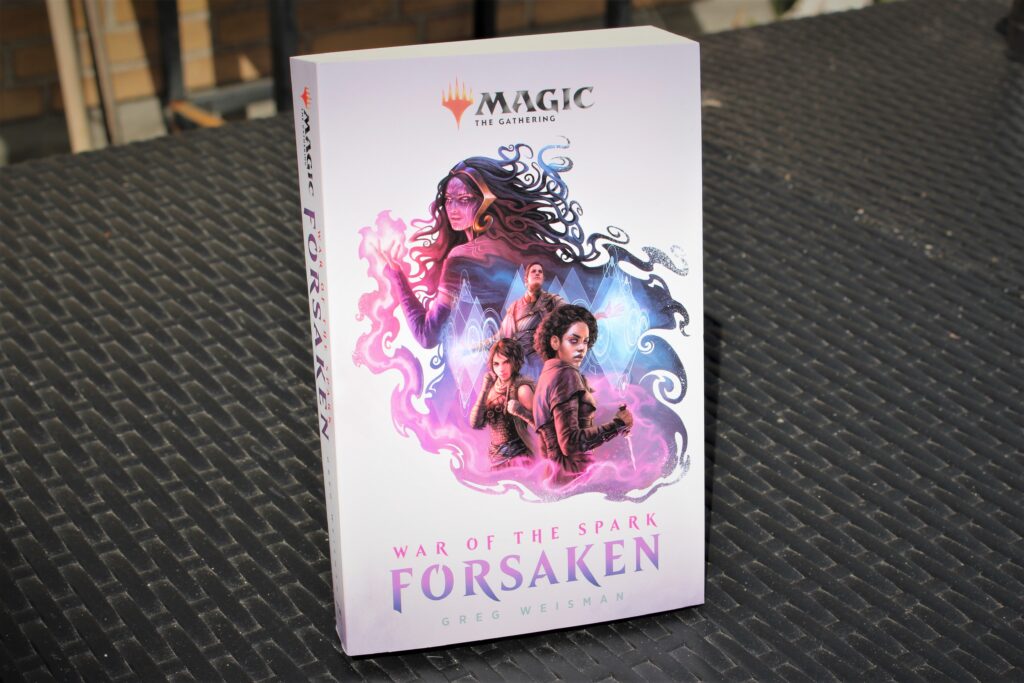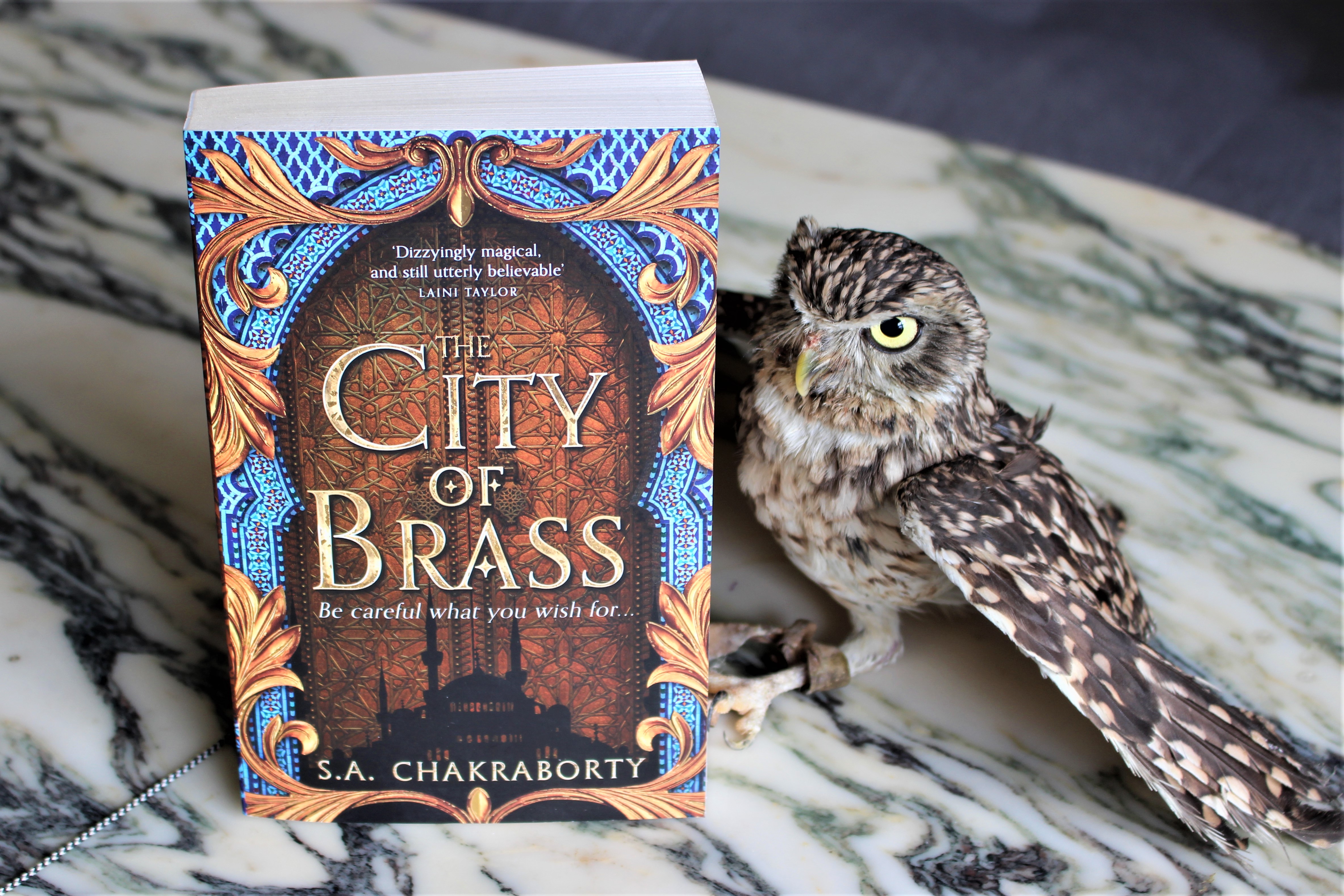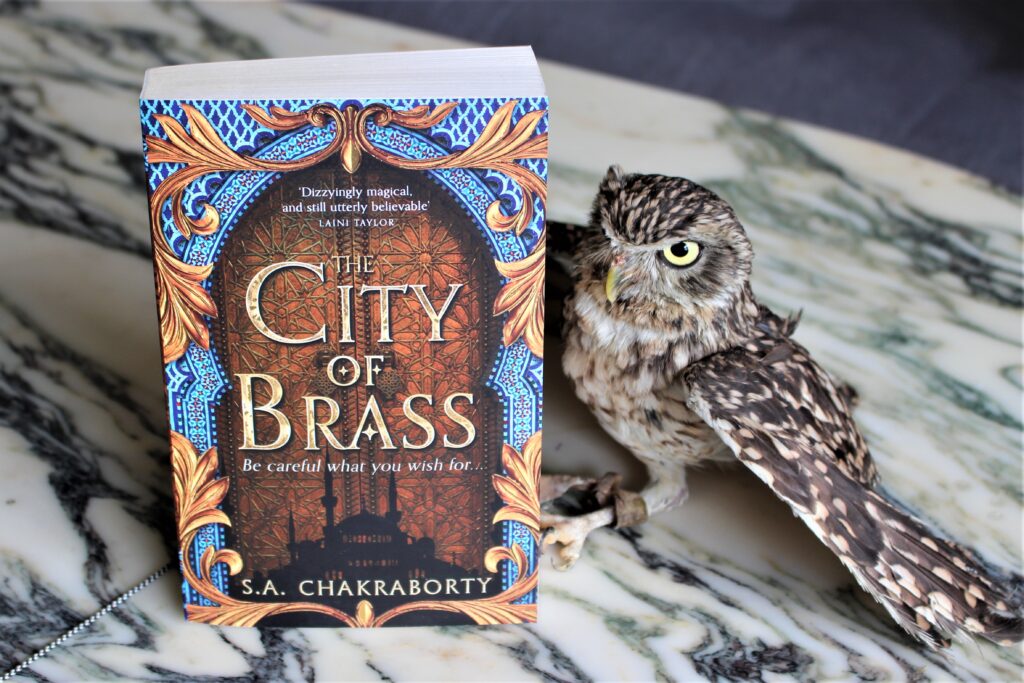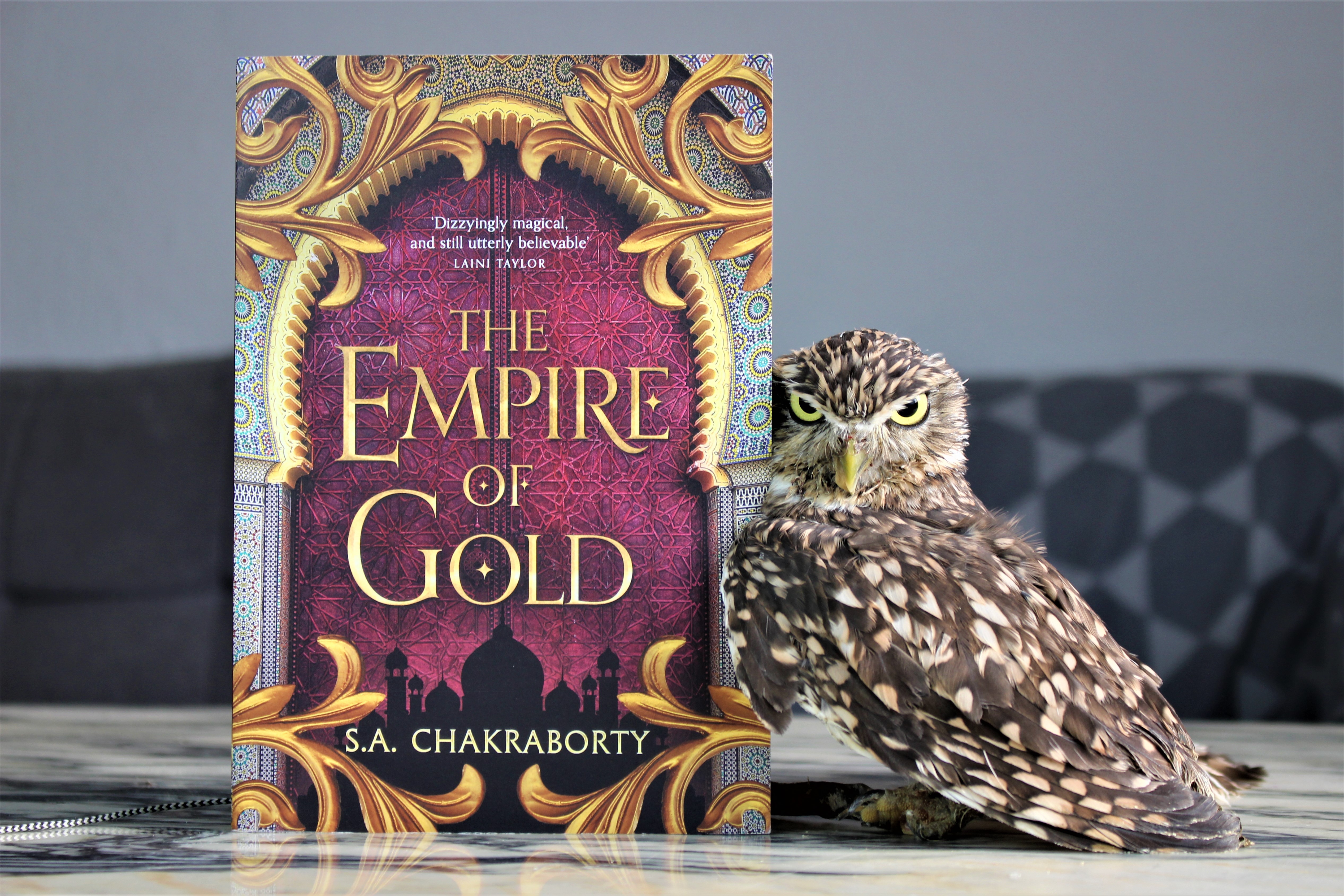
Today Artemis presents the last book in the Daevabad Trilogy – The Empire of Gold by S.A. Chakraborty!
The first book in this series didn’t grab me from the beginning, but oh boy, how that changed. From halfway through City of Brass until the very end of the trilogy, this story was packed with action, conspiracies, personal drama, amazing characters and fascinating world building.
The Empire of Gold was a great conclusion to the saga, but I’ll keep my summary short:
- Manizheh is seven kinds of crazy
- Jamshid is the most precious thing ever
- Damn it, Dara
But really, everything and everyone else could have gone to hell, as long as Mishmish – the apricot-loving shedu – would be all right in the end.
The Empire of Gold
by S. A. Chakraborty
Daevabad has fallen.
After a brutal conquest stripped the city of its magic, Nahid leader Banu Manizheh and her resurrected commander, Dara, must try to repair their fraying alliance and stabilize a fractious, warring people.
But the bloodletting and loss of his beloved Nahri have unleashed the worst demons of Dara’s dark past. To vanquish them, he must face some ugly truths about his history and put himself at the mercy of those he once considered enemies.
Having narrowly escaped their murderous families and Daevabad’s deadly politics, Nahri and Ali, now safe in Cairo, face difficult choices of their own. While Nahri finds peace in the old rhythms and familiar comforts of her human home, she is haunted by the knowledge that the loved ones she left behind and the people who considered her a savior are at the mercy of a new tyrant. Ali, too, cannot help but look back, and is determined to return to rescue his city and the family that remains. Seeking support in his mother’s homeland, he discovers that his connection to the marid goes far deeper than expected and threatens not only his relationship with Nahri, but his very faith.
As peace grows more elusive and old players return, Nahri, Ali, and Dara come to understand that in order to remake the world, they may need to fight those they once loved . . . and take a stand for those they once hurt.
